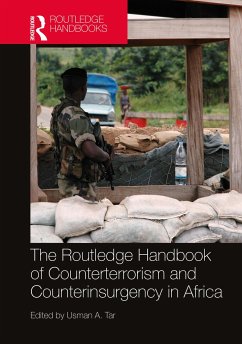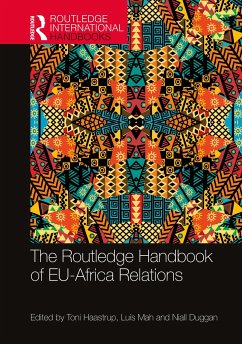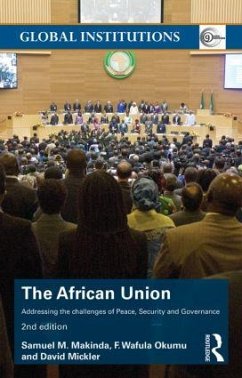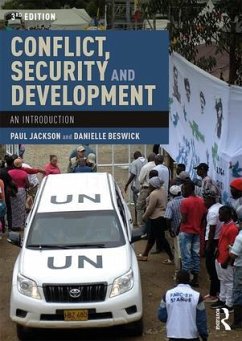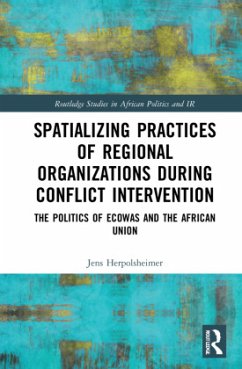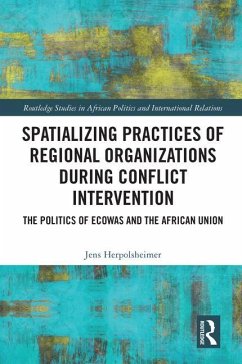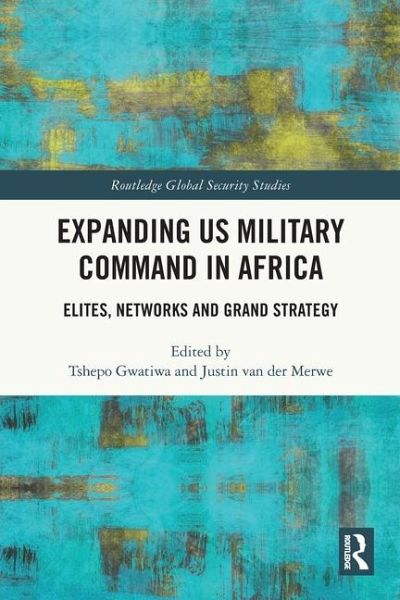
Expanding US Military Command in Africa
Elites, Networks and Grand Strategy
Herausgegeben: Gwatiwa, Tshepo; van der Merwe, Justin
Versandkostenfrei!
Versandfertig in 6-10 Tagen
45,99 €
inkl. MwSt.
Weitere Ausgaben:

PAYBACK Punkte
23 °P sammeln!
This book discusses the systematic expansion of the United States Africa Command (AFRICOM) across the continent of Africa.This book posits that AFRICOM expansion in Africa is part of a broader system of accumulation based on a government-business-media (GBM) complex. Applying the concept at both structural and descriptive levels, the GBM complex is a function of the synergy between the state's quest for power, businesses' need for expansion, and the informational and hegemonic functions of media actors. The United States' GBM complex in Africa is supported-and in some locations spearheaded-by ...
This book discusses the systematic expansion of the United States Africa Command (AFRICOM) across the continent of Africa.
This book posits that AFRICOM expansion in Africa is part of a broader system of accumulation based on a government-business-media (GBM) complex. Applying the concept at both structural and descriptive levels, the GBM complex is a function of the synergy between the state's quest for power, businesses' need for expansion, and the informational and hegemonic functions of media actors. The United States' GBM complex in Africa is supported-and in some locations spearheaded-by its military, with dispossessing effects on local actors. Drawing from African case studies, analytical accounts and empirical case studies, this book explores AFRICOM's role within this broader strategy. The volume maps both the methods and the scope of this expansion, as well as local resistance to this process, and comprises perspectives from the five regions of Africa, key sub-regional organizations and voices from Africa's regional hegemons.
This book will be of much interest to students of security studies, strategic studies, African politics and International Relations.
This book posits that AFRICOM expansion in Africa is part of a broader system of accumulation based on a government-business-media (GBM) complex. Applying the concept at both structural and descriptive levels, the GBM complex is a function of the synergy between the state's quest for power, businesses' need for expansion, and the informational and hegemonic functions of media actors. The United States' GBM complex in Africa is supported-and in some locations spearheaded-by its military, with dispossessing effects on local actors. Drawing from African case studies, analytical accounts and empirical case studies, this book explores AFRICOM's role within this broader strategy. The volume maps both the methods and the scope of this expansion, as well as local resistance to this process, and comprises perspectives from the five regions of Africa, key sub-regional organizations and voices from Africa's regional hegemons.
This book will be of much interest to students of security studies, strategic studies, African politics and International Relations.





